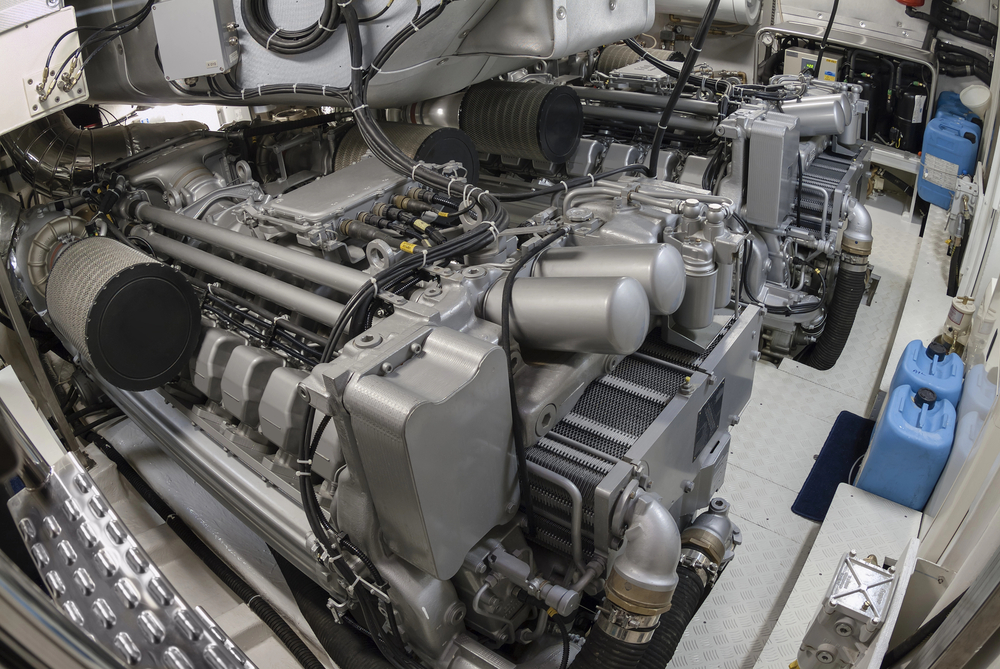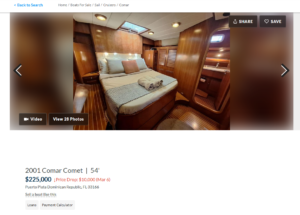A Brief Overview on what Yacht Engines need to Last
Virtually all modern yacht engines are diesel engines. Proper yacht engine service can prolong engine life and keep them purring!
All yacht engines have common requirements which will allow them to operate reliably for long periods:
- Enough Air – Yacht engines require lots of fresh air for combustion. Engine compartments must be able to provide this even if it is forced in via fans. The ideal situation is to pull air into the engine room via the top deck. The air is not as salty in ocean conditions and through fans that are variably controlled to provide positive pressure on demand. Controllable flaps shut off the supply of air in the event of fire. Keep your air filters clean. Most yacht engines use Air Sep filtration. A kit is readily available to service these important air filters. Without proper air, your engine starves with many fuel supply components at risk.
- Clean Fuel – Water and particulate matter must be filtered out. Most used yacht engines are equipped with pre filters such as Racor, to filter water and particles down to 10 microns before the engine filters which take it down to 2 microns. Fuel quality for yacht engines is more questionable the further yachts travel from populated areas, therefore it is imperative to have good fuel cleaning equipment on board.
It is a good idea to keep fuel tanks full so that water condensate does not collect. Water aids an environment allowing for a fungus to grow in fuel. This fungus can quickly clog filters and shut down operation. Many motor yachts for sale often sit around with untreated fuel.
Speaking of such, there is a little known device known as an RCI fuel purifier which scrubs contaminants to next to nothing before it hits the paper (Racor or other) filter. These are very inexpensive and easy to install. See yachtflush for more information on these easy and valuable services.
Yacht Engines Also Need These Services to Survive Well
- Proper Loading – Yacht engines perform and operate best with correctly sized propellers which should be kept clean. Engines must turn up to rated WOT (wide open throttle) and propellers should match this engine parameter closely. If not, there is a chance that the yacht engines will not load properly and have a life reduction.
- Clean Oil – Yacht engines require oil and lubricants to be changed at regular intervals. Most modern yachts have built-in pumps with hoses and valves making this an easy task. Talk to your engine dealer about the possibility of using synthetic oil instead as a longer lasting alternative to standard engine oil. The extra cost may be worth the longer intervals between changing oil and lubricating your engine better. A new technology is available for further filtering oil by a centrifugal method which can be easily installed as a bypass filter. It is a very good idea to have oil analyzed (even transmissions) every oil change, similar to a blood work-up – as one can often catch problems early before they get detrimental.
- Efficient Cooling Systems – The cooling system and raw water pump must be serviced on a periodic basis. Things grow in salt water to the detriment of cooling systems. This is the engine’s heart and something which many owners overlook. Note that new methods allow for descaling procedures without taking apart the units. This can be done in between major component removal. See yachtflush for more information on descaling engine cooling systems.
It is argued that modern large diesel engines, especially with high horsepower ratings, are not designed to operate at slow speeds. There is debate among professionals in this regard. However, sportfishing yachts for sale put on many hours at slow speeds without detriment. The common agreement is that engines of any type must be broken-in correctly when new or overhauled. They should be run up to high speeds at least periodically during every day of operation (to blow out soot).
Note that many popular yacht engines are maximized for horsepower. It is possible to get more life out of an older engine by ‘de-tuning’ it. This is usually accomplished by changing injector sizes.
Other Tips
Keep your engines free of corrosion. Clean rust and spray regularly with corrosion inhibitors such as CRC 626, Boeshield T9, Corrosion X or Corrosion Block.
Check your fluid levels every time you start the day. Inspect often for water and fluid leaks – and don’t let these persist!
It is surprising how yacht engine service is often neglected. Yacht engines are costly to repair and expensive to replace. By staying on top of basic yacht engine service, one can expect long life out of marine diesel engines.





